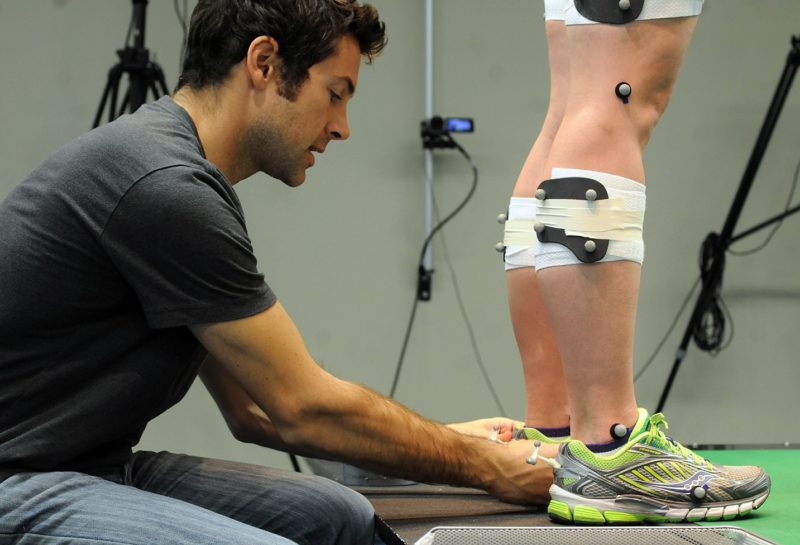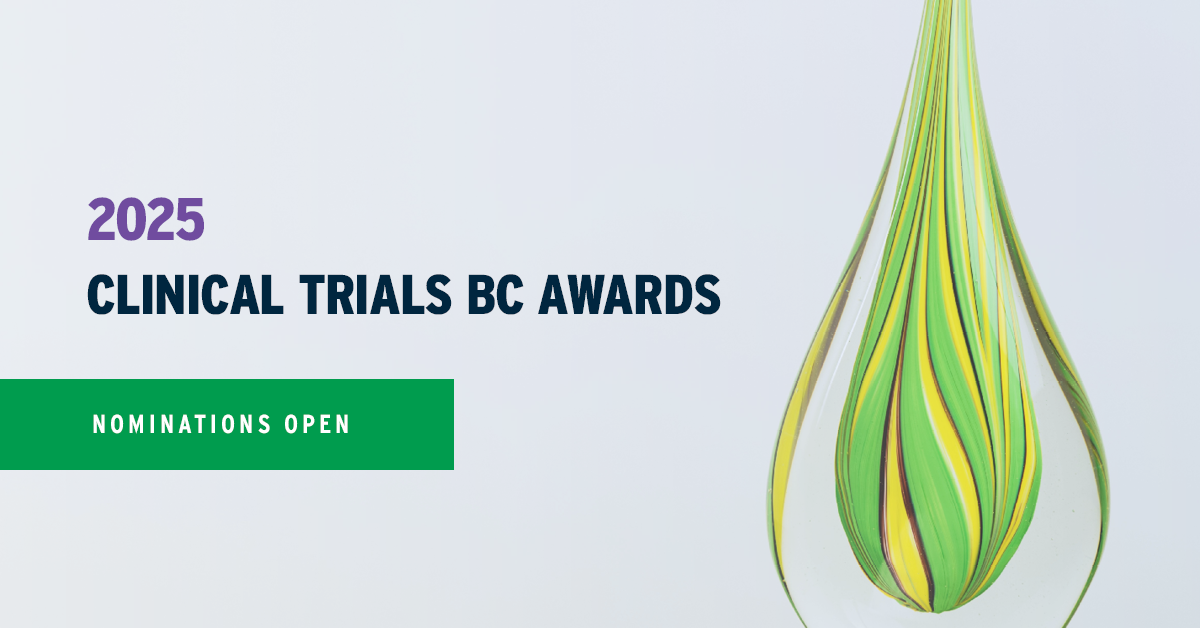MSFHR funding partnerships support AI-powered wearable technology
29 April 2021

With the emergence of spring, runners across British Columbia and beyond are lacing up running shoes and taking to the trails. Running offers incredible health benefits — but it needs to be done properly to avoid injury.
In fact, up to 50 percent of runners suffer an injury each year, often because of poor form.
Thanks to funding from MSFHR and Plantiga, a BC-based health monitoring company, a Vancouver-based sports physiotherapist and researcher is advancing a novel innovation to help runners improve their technique and prevent injury: a pair of running tights, powered by artificial intelligence (AI), to measure biomechanics outside of the lab setting.
Dr. Chris Napier, clinical assistant professor in the Department of Physical Therapy at the University of British Columbia (UBC), research investigator at the Vancouver Coastal Health Research Institute (VCHRI) and core faculty member of the Centre for Hip Health and Mobility, began developing the wearable technology three years ago during his post-doctoral term at Simon Fraser University (SFU).
Now, with funding through an MSFHR/Plantiga Health Professional-Investigator (HP-I) award, he is continuing to evolve the prototype into a commercially viable product.
The current prototype uses six soft strain sensors located at the hips, knees and ankles. These threads can detect when they are stretched or change length. Napier will further advance the design by integrating Plantiga’s clinical-grade Inertia Measurement Units (IMUs) into the running tights to improve accuracy and harness deep learning technology.
“As a running specialist, I examine biomechanical risk factors for running injuries and how to retrain those movement patterns using real-time feedback,” said Napier. “There are many shortcomings of doing that in a lab — it is a snapshot in an artificial environment and people have to physically go there. I started looking into wearable technology and with my team at SFU developed a prototype for runners to use a garment to measure their biomechanics.”
Data collected with the technology is analyzed through an AI platform to provide both the runner and their physiotherapist detailed information about form and technique — and how both can be improved.
Napier’s next steps involve making the technology fully wireless and testing it in different environments, as well as continuing to optimize data collection to pinpoint specific movements.
“We are thrilled to partner with MSFHR on funding Dr. Napier to pursue this wearable technology through the HP-I award,” said Quin Sandler, CEO of Plantiga. “Dr. Napier’s technology seamlessly fits within Plantiga’s beta program to bring remote monitoring and movement analysis to recreational athletes. We look forward to seeing Dr. Napier continue to move this exciting technology along the pipeline so that more runners and their practitioners can get detailed insights about their athletic performance to improve lower body health, reduce injury, and increase performance output.”
The funding has also made Napier a more competitive applicant for further grants to finance his activities. He recently received a Mitacs Accelerate Award, made possible through a partnership between MSFHR and Mitacs, allowing him to hire a PhD student for 36 months, which will help accelerate the innovation and further foster health research talent in British Columbia.
“I’m looking forward to bringing this wearable technology closer to becoming a commercial product,” said Napier. “One day I’d love to see it used by clinicians as an assessment tool to monitor runners and offer interventions. I’d also like to see it used by runners themselves, just like they use other tools like heart rate monitors and GPS watches, to monitor their training load and make informed decisions about when they need to back off or increase their training for performance.”
MSFHR’s HP-I program helps close the gap between health research and its implementation. HP-I awards support health professionals who are actively involved in patient care to conduct and apply research relevant to health and/or the health system.
Partnership opportunities are now available for the 2021 HP-I competition. MSFHR partners with a number of organizations across sectors to support priority research that grows BC’s research talent and innovation.





